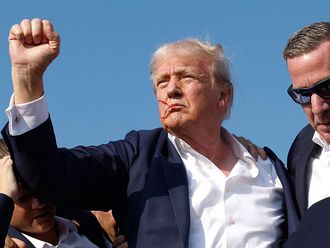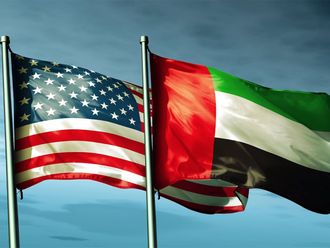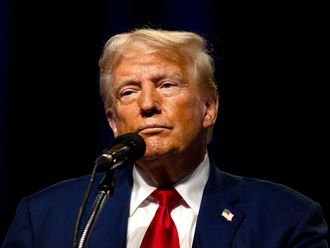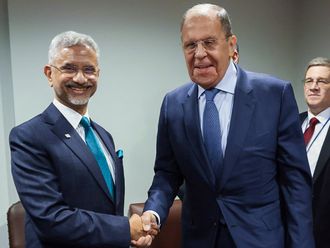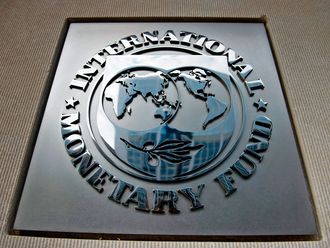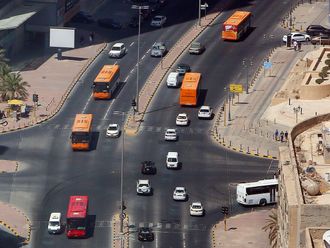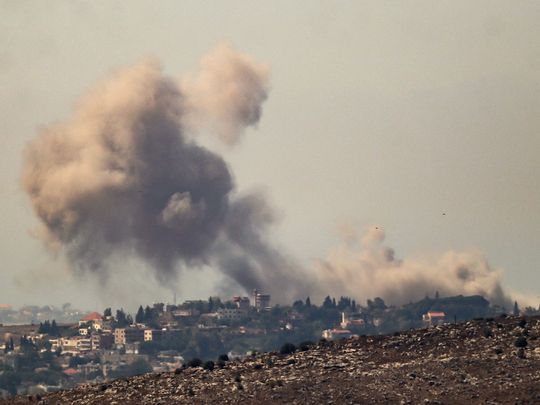
BBeirut, Lebanon: Israel flatly rejected on Thursday a push led by key backer the United States for a 21-day ceasefire in Lebanon, as it vowed to keep fighting Hezbollah militants "until victory".
Israeli aerial bombardment of Hezbollah strongholds around Lebanon has killed hundreds of people this week, while the militant group has hit back with barrages of rockets.
"There will be no ceasefire in the north. We will continue to fight against the Hezbollah terrorist organisation with all our strength until victory and the safe return of the residents of the north to their homes," Katz said in a post on social media platform X.
Moments earlier, Israeli Prime Minister Benjamin Netanyahu's office issued a statement saying he had "not even responded" to the truce proposal, and that he had ordered the military "to continue the fighting with full force".
The United States, France and other allies issued a joint statement calling for a 21-day halt in the fighting, with President Joe Biden, his French counterpart, Emmanuel Macron, and other allies meeting on the sidelines of the UN General Assembly in New York.
The situation in Lebanon has become "intolerable" and "is in nobody's interest, neither of the people of Israel nor of the people of Lebanon," the statement said.
On the ground, there was no let-up in the violence.
On Thursday, the Israeli military said it had struck "approximately 75 terror targets" in the Bekaa Valley in eastern Lebanon and the south, both Hezbollah bastions that have seen a huge exodus people fleeing their homes in recent days.
One strike near the ancient city of Baalbek killed at least nine people, Lebanon's health ministry said, as the official National News Agency described the overnight bombing of the area as "the most violent" of recent days.
"It was indescribable, it was one of the worst nights we've lived through. You think there's just a second between life and death," said Fadia Rafic Yaghi, 70, who owns a shop in Baalbek.
The Israeli military also said around 45 rockets had been fired from Lebanon, adding that some had been intercepted while others had landed in unpopulated areas.
Hezbollah said that it had targeted defence industry complexes near the city of Haifa in northern Israel, saying it was "defending Lebanon and its people", after rocketing the same complex previously this week.
Possible ground offensive
Israel earlier this month said it was shifting its focus from Gaza, where it has been fighting a war with Hamas since the October 7 attack, to securing its border with Lebanon.
Hamas ally Hezbollah has been fighting Israeli troops across the Lebanon border since October, forcing tens of thousands of people on both sides to flee their homes.
Netanyahu announced earlier this month that ensuring the safe return of Israelis to their homes in the north was a priority.
He delayed his departure for New York until Thursday, where he is due to address the General Assembly.
On Wednesday, Israel's army chief told soldiers to prepare for a possible ground offensive against Hezbollah, as two reserve brigades were called up "for operational missions in the northern arena".
"We are attacking all day, both to prepare the ground for the possibility of your entry, but also to continue striking Hezbollah," Lieutenant General Herzi Halevi said.
Exodus
For many on both sides of the border, the violence has sparked bitter memories of the 2006 war between Hezbollah and Israel that killed 1,200 people in Lebanon, most of them civilians, and 160 Israelis, most of them soldiers.
According to the UN, Israel's bombardment of Lebanon has forced 90,000 people to flee their homes in traditional Hezbollah strongholds to safer areas elsewhere in the tiny Mediterranean country.
Hezbollah had on Wednesday said it targeted Israel's Mossad spy agency headquarters on Tel Aviv's outskirts - the first time it has claimed a ballistic missile firing in almost a year of cross-border clashes sparked by the Gaza war.
Tel Aviv resident Hedva Fadlon, 61, told AFP: "The situation is difficult. We feel the pressure and the tension... I don't think anyone in the world would like to live like this."
Iranian Foreign Minister Abbas Araghchi said the Middle East was facing a "full-scale catastrophe" and warned Tehran would back Lebanon by "all means" if Israel escalated its offensive.
The Israeli military said Wednesday it had hit more than 2,000 Hezbollah targets over the previous three days, including 60 Hezbollah intelligence sites.
Israeli strikes killed at least 558 people on Monday - by far the deadliest day of violence in Lebanon not just in the latest escalation, but since the 1975-1990 civil war.
Israel's bombardment on Wednesday killed another 72 people and wounded 400 more, according to the Lebanese health ministry.
Gaza link?
Prior to the current escalation, diplomats had said efforts to end the war in Gaza were key to calming regional tensions, including in Lebanon.
But Qatar, a key broker in the stalled talks to end the Gaza war, said it was unaware of a "direct link" between the two.
"I'm not aware of a direct link, but obviously both mediations are hugely overlapping when you are talking about the same parties, for the most part, that are taking part," foreign ministry spokesman Majed al-Ansari said.
The war in Gaza began with Hamas's October 7 attack on Israel, which resulted in the deaths of 1,205 people, mostly civilians, according to an AFP tally based on Israeli official figures that include hostages killed in captivity.
Of the 251 hostages seized by militants, 97 are still held in Gaza, including 33 the Israeli military says are dead.
Israel's retaliatory military offensive has killed at least 41,495 people in Gaza, most of them civilians, according to figures provided by the Hamas-run territory's health ministry. The UN has described the figures as reliable.


